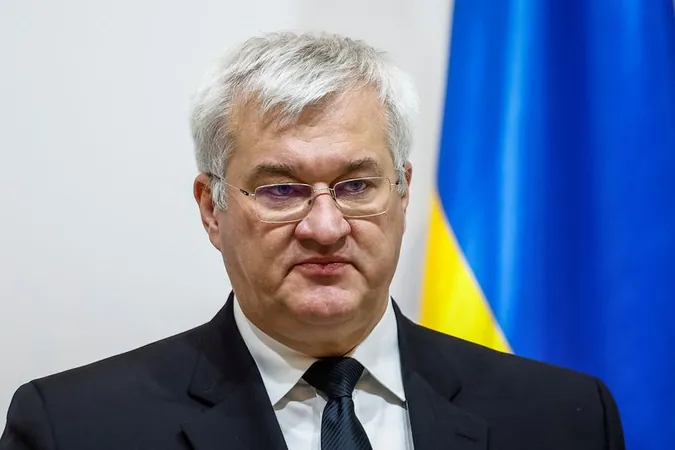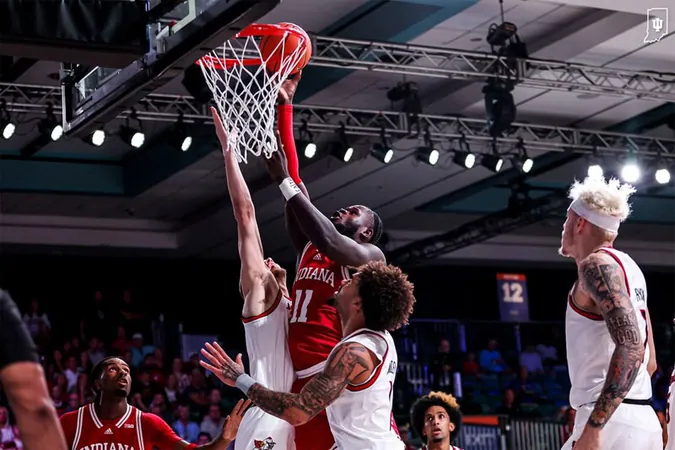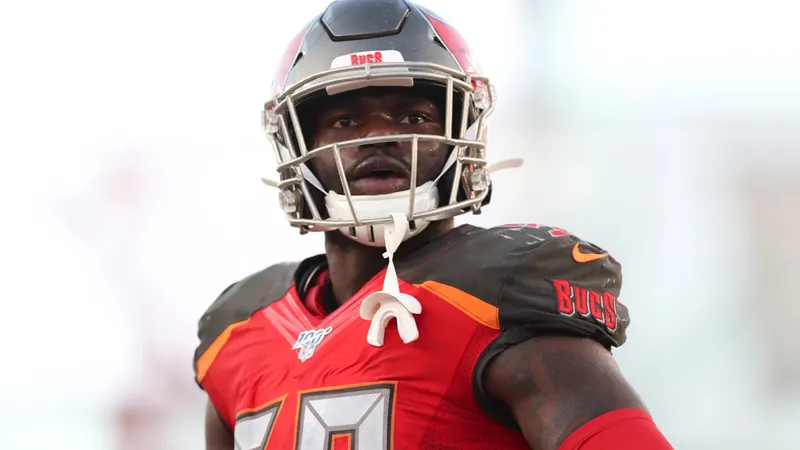
Ukraine Urges NATO to Extend Membership Invitation Amid Ongoing War Tensions
2024-11-29
Author: Chun
Introduction
In a strategic move, Ukrainian Foreign Minister Andrii Sybiha has requested that NATO members issue an invitation for Ukraine to join the military alliance during an upcoming meeting in Brussels set for December 3-4. This plea reflects Ukraine’s intensified efforts to gain NATO membership as part of President Volodymyr Zelenskiy's overarching 'victory plan' aimed at concluding the ongoing conflict sparked by Russia's 2022 invasion.
Zelenskiy's Proposal
Zelenskiy, in an interview with Sky News, suggested that NATO membership could be offered to Ukraine while allowing for the current territorial situation with Russia to remain unchanged—a potentially viable exit strategy to de-escalate the 'hot stage' of a war that has persisted for 33 months.
Understanding the Situation
Acknowledging the complexities of the situation, Ukraine’s leadership underscored its understanding that formal NATO membership would not be attainable until the war concludes. However, they argued that extending an invitation now would demonstrate to Russian President Vladimir Putin that his main objective of preventing Ukraine from joining NATO cannot be fulfilled.
Sybiha's Letter
Sybiha stated in his letter, 'The invitation should not be seen as an escalation. In fact, it is crucial to convey to Russia that its aggressive actions are futile.' He emphasized the need for NATO allies to endorse Ukraine’s membership as a critical response to Russia's continued military aggression, which he argues has been exacerbated by outside influences, such as North Korean troop involvement.
NATO's Consensus
Despite this urgency, NATO sources indicate that there remains a lack of consensus among member states regarding Ukraine's invitation, as any such decision would require the agreement of all 32 NATO countries. Olga Stefanishyna, Ukraine's Deputy Prime Minister for NATO Affairs, affirmed that although the consensus for an invitation is not currently present, the correspondence aims to project strong political intent.
Stefanishyna's Assurance
'Our message to our allies is clear: the invitation is not off the table, despite various political maneuverings and speculations around it,' she stressed.
NATO's Response to Russia
Furthermore, Sybiha’s letter highlights the need for NATO to reconsider its policies in light of Russia’s recent military developments, which include the alarming deployment of advanced weaponry and foreign troops. Diplomats within NATO remain cautious, particularly as they await further clarity on U.S. policy under the incoming administration of President-elect Donald Trump, which serves as the alliance's leading power.
Russian Military Activity
In a related context, Russia has continued to demonstrate its military capabilities, with recent missile strikes targeting Ukraine, raising concerns about the potential for further escalation in the ongoing conflict.
Conclusion
As the situation evolves, NATO’s response will be closely scrutinized, as Ukraine remains steadfast in its pursuit of membership and defense against Russian aggression. The stakes are high, and Ukraine’s future alliance with NATO hangs in the balance as both military and diplomatic efforts intensify on the ground.


 Brasil (PT)
Brasil (PT)
 Canada (EN)
Canada (EN)
 Chile (ES)
Chile (ES)
 España (ES)
España (ES)
 France (FR)
France (FR)
 Hong Kong (EN)
Hong Kong (EN)
 Italia (IT)
Italia (IT)
 日本 (JA)
日本 (JA)
 Magyarország (HU)
Magyarország (HU)
 Norge (NO)
Norge (NO)
 Polska (PL)
Polska (PL)
 Schweiz (DE)
Schweiz (DE)
 Singapore (EN)
Singapore (EN)
 Sverige (SV)
Sverige (SV)
 Suomi (FI)
Suomi (FI)
 Türkiye (TR)
Türkiye (TR)